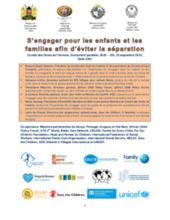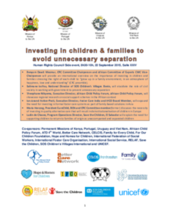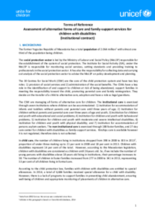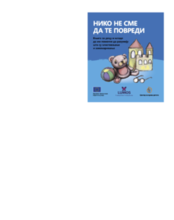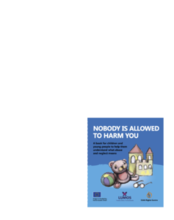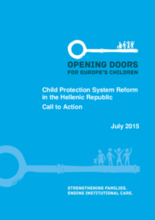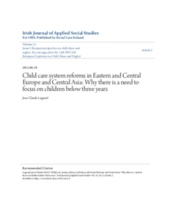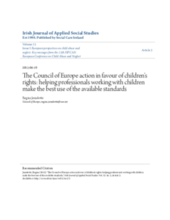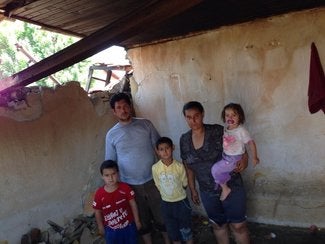

Displaying 381 - 390 of 527
This Human Rights Council Side event included presentations on family separation in the African, Asian, European, and Latin American contexts.
This Human Rights Council Side event included presentations on family separation in the African, Asian, European, and Latin American contexts.
UNICEF is calling for the submission of proposals to conduct an assessment of alternative forms of care and family support services for children with disabilities in the Former Yugoslav Republic of Macedonia.
This book is designed to help children and young people understand what abuse and neglect are, and who to ask for help if it happens to them or to someone they know. The book is written in the Serbian context and is available in English and Serbian.
This book is designed to help children and young people understand what abuse and neglect are, and who to ask for help if it happens to them or to someone they know. The book is written in the Serbian context and is available in English and Serbian.
This post from Opening Doors for Europe’s Children features statements regarding the impact of Greece’s debt crisis on children from Mary Theodoropoulou, the coordinator of Opening Doors for Europe’s Children in Greece and chair of the Roots Research Centre, an Athens-based organisation that works on reforming alternative care for children.
Using structural equation modeling the present study analyzed the associations between quality of sibling relationship and self-concept of institutionalized adolescents, testing the mediating role of resilience in this association, and the moderating effect of the maintenance of contact between siblings.
This paper presents a policy position which argues that, “as the Greek authorities map out the road to long-term recovery, several key steps to reform the child protection and care system should be taken as a matter of priority.”
This paper describes the diversified approaches in Eastern and Central Europe and Central Asia to end the placement of children under three in institutions and prevent the separation of children from their families.
This article describes the current strategies of the “Building a Europe for and with Children” programme, a programme of the Council of Europe. The strategy focuses on four areas of action: promoting child-friendly services and systems; eliminating all forms of violence against children; guaranteeing the rights of children in vulnerable situations, and promoting child participation. A further standard is available on children’s rights and social services friendly to children and families for ensuring that children lacking or placed outside parental care are given adequate treatment.

